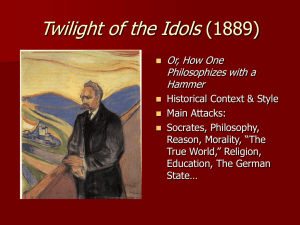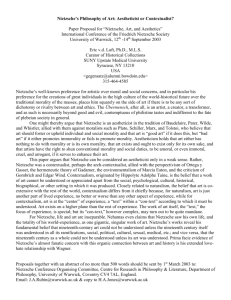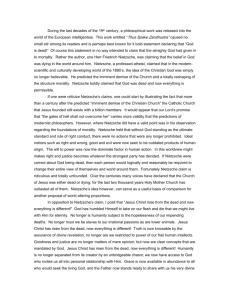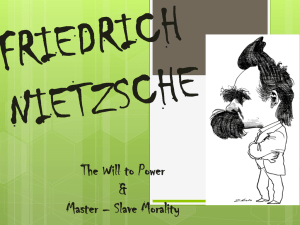Study Questions for Nietzsche, Twilight of the Idols
advertisement
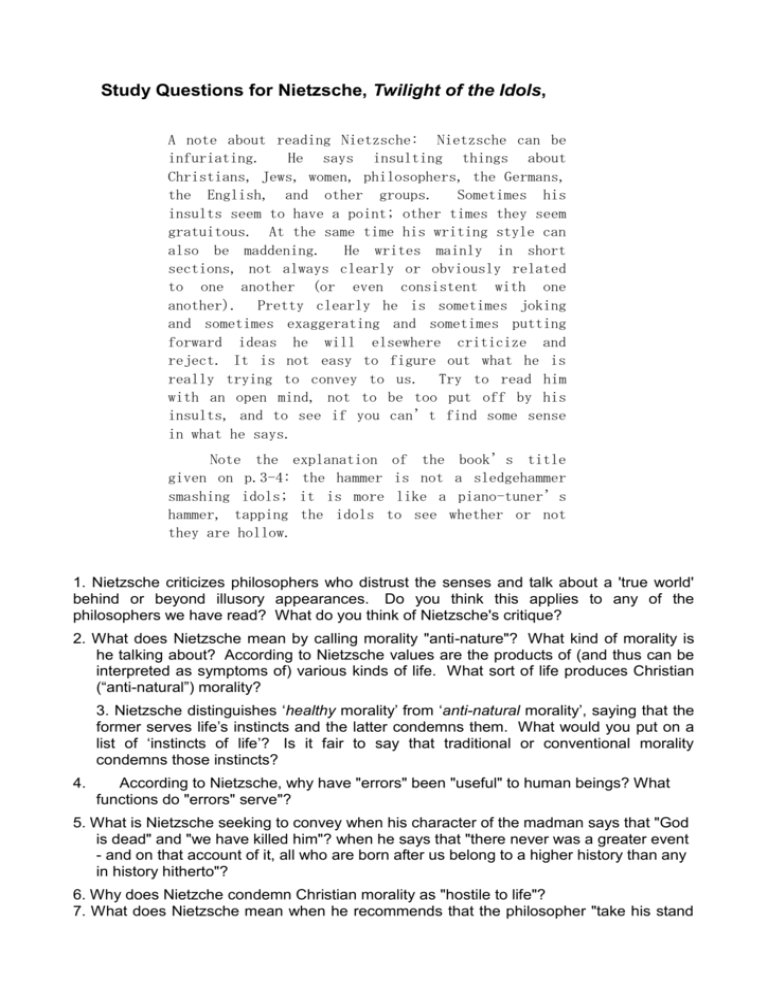
Study Questions for Nietzsche, Twilight of the Idols, A note about reading Nietzsche: Nietzsche can be infuriating. He says insulting things about Christians, Jews, women, philosophers, the Germans, the English, and other groups. Sometimes his insults seem to have a point; other times they seem gratuitous. At the same time his writing style can also be maddening. He writes mainly in short sections, not always clearly or obviously related to one another (or even consistent with one another). Pretty clearly he is sometimes joking and sometimes exaggerating and sometimes putting forward ideas he will elsewhere criticize and reject. It is not easy to figure out what he is really trying to convey to us. Try to read him with an open mind, not to be too put off by his insults, and to see if you can’t find some sense in what he says. Note the explanation of the book’s title given on p.3-4: the hammer is not a sledgehammer smashing idols; it is more like a piano-tuner’s hammer, tapping the idols to see whether or not they are hollow. 1. Nietzsche criticizes philosophers who distrust the senses and talk about a 'true world' behind or beyond illusory appearances. Do you think this applies to any of the philosophers we have read? What do you think of Nietzsche's critique? 2. What does Nietzsche mean by calling morality "anti-nature"? What kind of morality is he talking about? According to Nietzsche values are the products of (and thus can be interpreted as symptoms of) various kinds of life. What sort of life produces Christian (“anti-natural”) morality? 3. Nietzsche distinguishes ‘healthy morality’ from ‘anti-natural morality’, saying that the former serves life’s instincts and the latter condemns them. What would you put on a list of ‘instincts of life’? Is it fair to say that traditional or conventional morality condemns those instincts? 4. According to Nietzsche, why have "errors" been "useful" to human beings? What functions do "errors" serve"? 5. What is Nietzsche seeking to convey when his character of the madman says that "God is dead" and "we have killed him"? when he says that "there never was a greater event - and on that account of it, all who are born after us belong to a higher history than any in history hitherto"? 6. Why does Nietzche condemn Christian morality as "hostile to life"? 7. What does Nietzsche mean when he recommends that the philosopher "take his stand beyond good and evil and leave the illusion of moral judgment beneath himself"? 8. Explain the will to power. How does it operate in slave morality? In master morality? 9. Explain perspectivism. How is it important to Nietzsche's philosophy?





